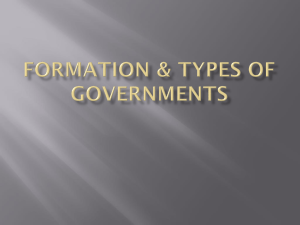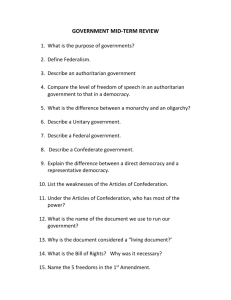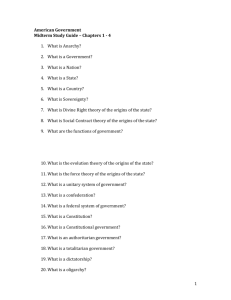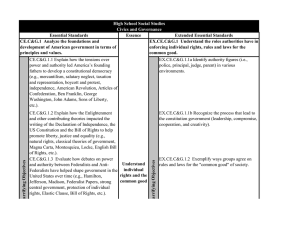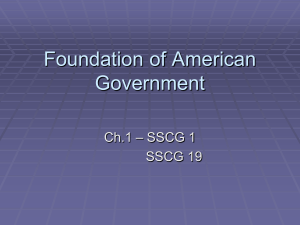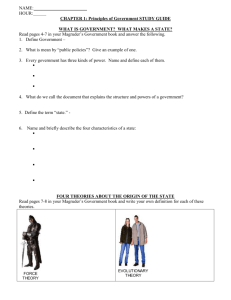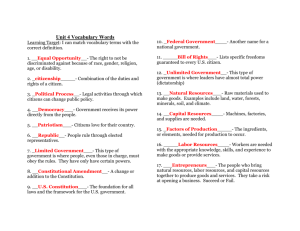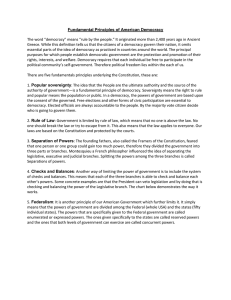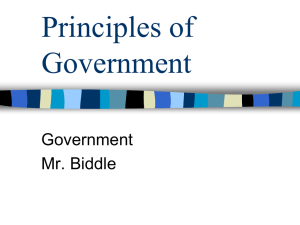Law and Government Chapter 1 Study Guide We The People
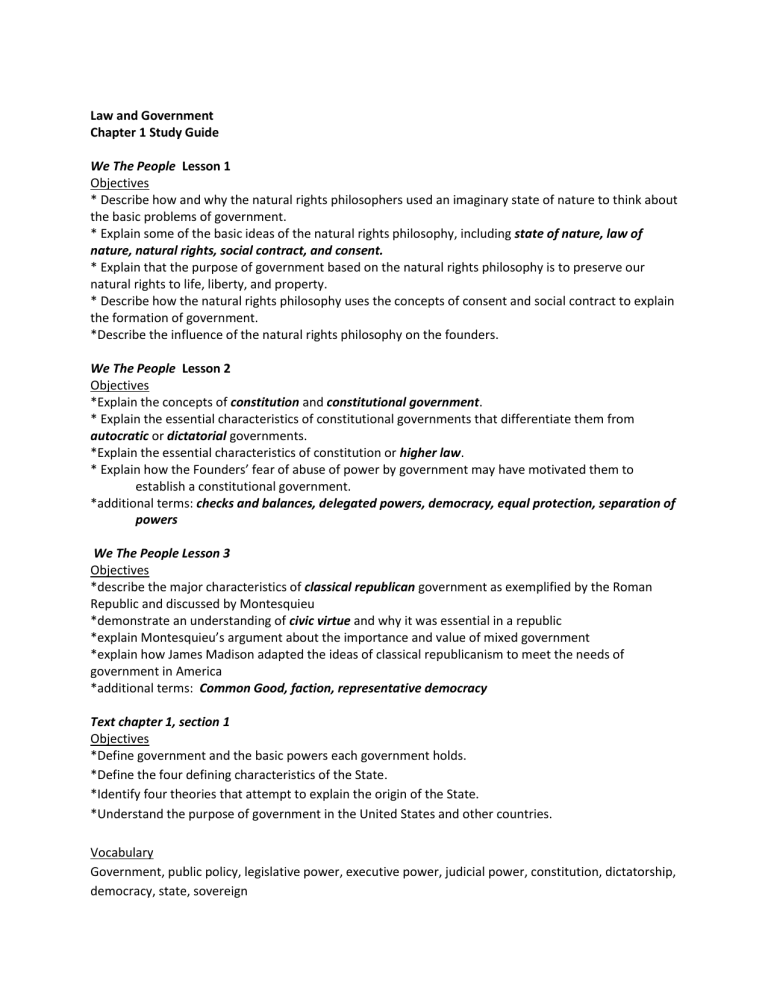
Law and Government
Chapter 1 Study Guide
We The People Lesson 1
Objectives
* Describe how and why the natural rights philosophers used an imaginary state of nature to think about the basic problems of government.
* Explain some of the basic ideas of the natural rights philosophy, including state of nature, law of nature, natural rights, social contract, and consent.
* Explain that the purpose of government based on the natural rights philosophy is to preserve our natural rights to life, liberty, and property.
* Describe how the natural rights philosophy uses the concepts of consent and social contract to explain the formation of government.
*Describe the influence of the natural rights philosophy on the founders.
We The People Lesson 2
Objectives
*Explain the concepts of constitution and constitutional government.
* Explain the essential characteristics of constitutional governments that differentiate them from
autocratic or dictatorial governments.
*Explain the essential characteristics of constitution or higher law.
* Explain how the Founders’ fear of abuse of power by government may have motivated them to establish a constitutional government.
*additional terms: checks and balances, delegated powers, democracy, equal protection, separation of powers
We The People Lesson 3
Objectives
*describe the major characteristics of classical republican government as exemplified by the Roman
Republic and discussed by Montesquieu
*demonstrate an understanding of civic virtue and why it was essential in a republic
*explain Montesquieu’s argument about the importance and value of mixed government
*explain how James Madison adapted the ideas of classical republicanism to meet the needs of government in America
*additional terms: Common Good, faction, representative democracy
Text chapter 1, section 1
Objectives
*Define government and the basic powers each government holds.
*Define the four defining characteristics of the State.
*Identify four theories that attempt to explain the origin of the State.
*Understand the purpose of government in the United States and other countries.
Vocabulary
Government, public policy, legislative power, executive power, judicial power, constitution, dictatorship, democracy, state, sovereign
Text chapter 1, section 2
Objectives
*Classify governments according to three sets of characteristics.
*Define systems of government based on who can participate.
*Identify different ways that power can be distributed, geographically, within a state.
*Describe a government by how power is distributed between the executive branch and legislative
branch.
Vocabulary
Autocracy, oligarchy, unitary government, federal government, division of powers, confederation, presidential government, parliamentary government
Text chapter 1, section 3
Objectives
*Understand the foundations of democracy.
*Analyze the connections between democracy and free enterprise.
*Identify the role of the internet in a democracy.
Formative Assessment
Handout 1: Government: Should it be limited or absolute?
Federalist 10 and 51
We the People Lesson 1 quiz, Lesson 2 Quiz, Lesson 3 Quiz
Ch. 1 Sections 1-3 quizzes
Summative Assessment
Exam: Origins of American Government - drawn from learning objectives and key terms

